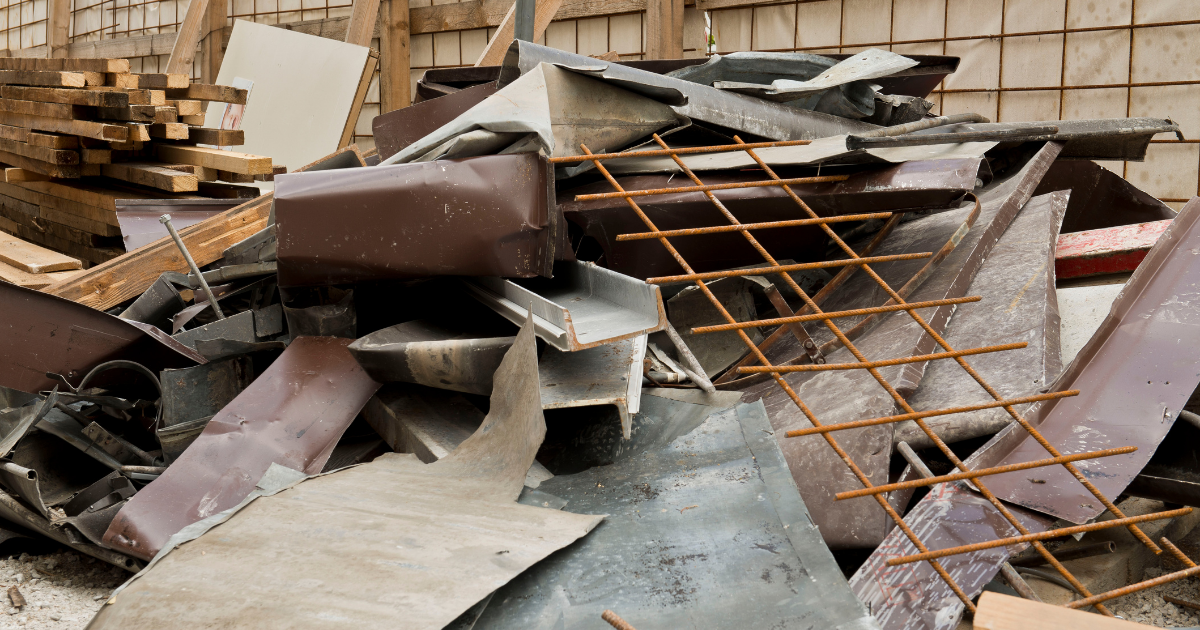How Do Businesses Get Hazardous Waste Disposal Permits?

In 1976, the U.S. government established the Resource Conservation and Recovery Act (RCRA). This act gave the Environmental Protection Agency (EPA) the authority to control the lifecycle of hazardous waste, including:
- Generation.
- Transportation.
- Treatment.
- Storage.
- Disposal.
The RCRA was enacted because Congress recognized the risks inherent in safely managing large volumes of hazardous waste. They felt that treatment, storage, and disposal facilities (TSDFs) needed to be closely regulated to prevent spills, accidents, ground and water contamination, and mechanical failures.
Amendments to the RCRA in 1984 and later expanded the scope and authority of the program. Today, the RCRA hazardous waste permitting program continues to ensure the safe management of hazardous wastes across the United States. Authorized states or EPA regional offices issue permits. States and the EPA work together to implement RCRA mandates.
In New Jersey, the Department of Environmental Protection oversees the permitting and other activities of hazardous waste TSDFs. Businesses needing a permit will start with this department, which will guide them through the permitting process.
New Jersey follows the stringent mandates of the EPA’s RCRA program, including the following permitting requirements:
- TSDFs must get a permit before they begin construction to show that they can manage the waster responsibly and safely. The state will review their application and decide whether to grant or deny the facility a permit. Permits are typically given for a period of up to 10 years.
- Permitted operating TSDFs must submit a new permit application six months before their existing permit expires.
- TSDFs operating under interim status must also apply for a permit. Congress-approved interim status allows existing facilities to continue operating while permit applications are under review. The interim status also applies when facilities are newly brought into regulatory requirements.
What Does the Permit Address?
A hazardous waste permit establishes the administrative and technical conditions for a business to manage hazardous waste. It is a legally binding document that clearly outlines the waste management activities a company can perform and the conditions under which it can conduct them.
A hazardous waste permit also provides:
- Safety standards.
- Facility design and operation recommendations.
- Descriptions of the activities a business must execute, such as monitoring and reporting.
Permits also typically require facilities to develop emergency plans, retain insurance, and train employees to safely handle hazardous materials and emergencies.
Either the state or the EPA can issue or deny permits and is responsible for monitoring the facility. In New Jersey, the state issues permits and monitors operations while following the EPA’s stringent requirements.
What Businesses Need a Hazardous Waste Permit?
In New Jersey, any business that currently treats, stores, or disposes of hazardous wastes or plans to do so in the future must get a permit. Some facilities are not required to obtain a RCRA permit when handling hazardous waste if they meet conditions specified in the regulations, including:
- Businesses that generate hazardous waste but store it for just a short time before transporting it offsite.
- Hazardous waste transporters.
- Entities performing hazardous waste containment activities is an emergency response.
What Does a TSDF Do?
A TSDF receives hazardous wastes for treatment, storage, or disposal:
- Treatment: Treatment involves using processes, such as oxidation or incineration to alter the composition of the waste. Some treatment processes allow waste to be recovered and reused in manufacturing settings. Other treatment processes lessen the amount of hazardous waste.
- Storage: Storage involves holding hazardous waste until it can be treated or disposed. Holding is temporary. The waste must be stored in containers, tanks, containment buildings, and other storage units that comply with RCRA regulations.
- Disposal: Disposal is permanently containing hazardous waste. The most common disposal facility is a landfill, where wastes are disposed of in special units designed to protect groundwater and surface water.
What Must a Business Address in a Permit Application?
New Jersey has a stringent application process that ensures compliance with state and federal regulations and protects the environment and human health. The application process is lengthy and requires a great deal of information, including the following.
Facility Information
Required information includes:
- Owner/operator name and contact information.
- Facility locations.
- Waste management processes.
- Type of waste they will handle.
- Facility’s capacity to handle the operations.
- Details about the activities to be conducted at the facility, including data collection.
Air Emissions
Information about how the facility will keep with RCRA regulations to control volatile organic compounds emissions from vents, equipment, and storage units.
Closure
Ability to comply with requirements for ceasing operations and closing the facility without posing a threat to the environment or human health.
Clean Up/Corrective Action
How the facility will investigate and clean up hazardous releases into the soil, ground and surface water, and air.
Financial Assurance
TSDFs must demonstrate they have the financial resources to properly close a facility when it ceases operation and implement emergency response in case of an accidental release of waste.
Ground Water Monitoring
The application will require TSDFs to show how they will monitor the health of groundwater beneath their facilities per RCRA requirements.
Land Disposal Restrictions
The facility must show the ability to comply with EPA requirements for hazardous waste to be treated before being disposed of on land.
Many businesses will engage a lawyer specializing in environmental issues to help them through the application process and further understand compliance requirements. Since companies must follow both federal and state environmental regulations, it may be worth consulting a lawyer who is experienced in environmental law if issues arise.
New Jersey Environmental Lawyers at Herold Law Help Businesses With EPA and State Requirements
Our knowledgeable New Jersey environmental lawyers at Herold Law, P.A. know federal and state requirements surrounding your business’s ecological issues. Call us at 908-647-1022 or contact us online for an initial consultation. Located in Warren, New Jersey, we serve clients throughout the surrounding areas, including Plainfield.




 908-679-5011
908-679-5011



